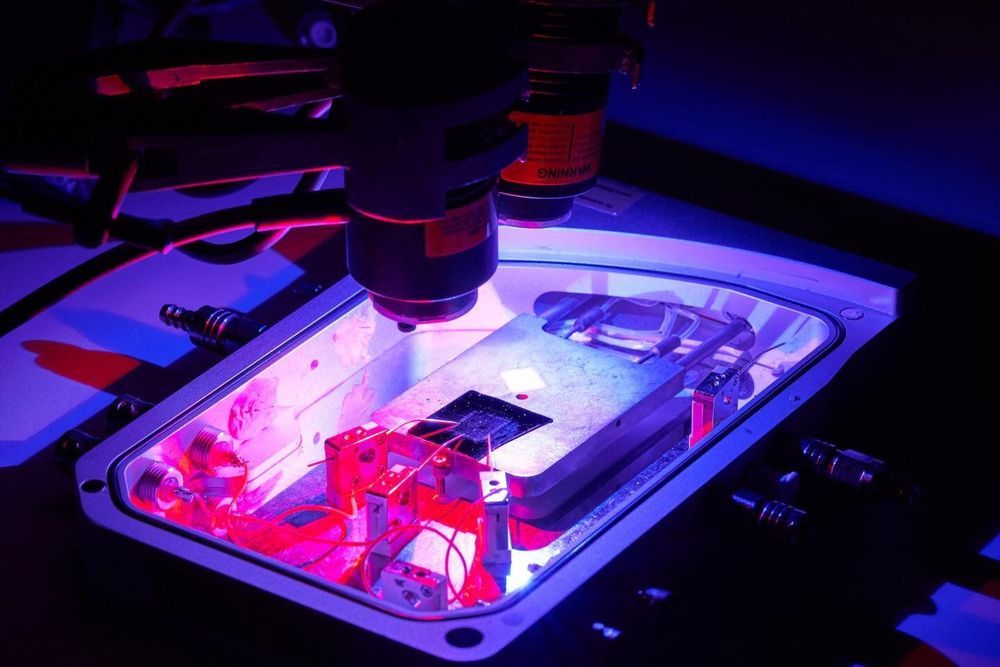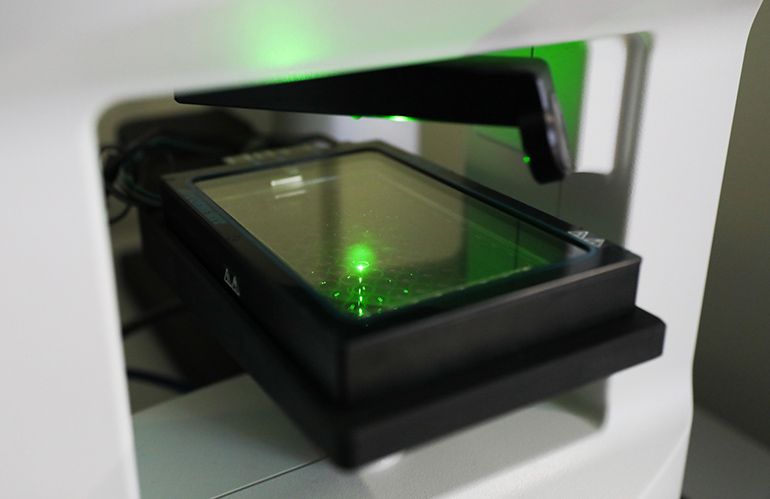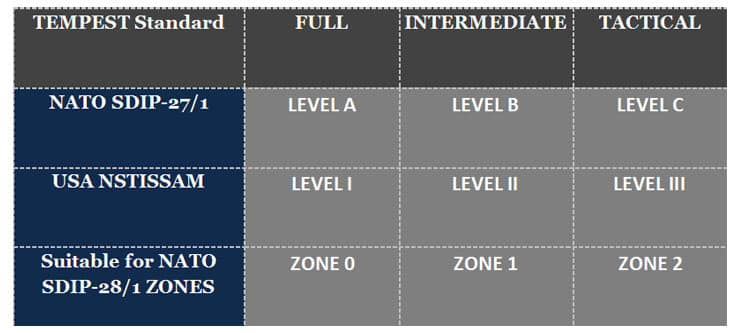Page 8525
Jul 18, 2019
Ebola Outbreak in Congo Is Declared a Global Health Emergency
Posted by Quinn Sena in categories: biotech/medical, health
The year-old Ebola epidemic in the Democratic Republic of Congo is now considered a global health emergency, the World Health Organization said on Wednesday, in a formal declaration that many public health experts called long overdue.
“This is still a regional emergency and by no way a global threat,” said Robert Steffen of the University of Zurich, chairman of the W.H.O. emergency committee that recommended the declaration.
But the panel was persuaded by several factors that have made combating the epidemic more urgent in recent weeks: The disease reached Goma, a city of nearly two million people; the outbreak has raged for a year; the virus has flared again in spots where it had once been contained; and the epidemic hot zone has geographically expanded in northeastern Congo near Rwanda and into Uganda.
Jul 18, 2019
Electronic chip mimics the brain to make memories in a flash
Posted by Paul Battista in categories: biotech/medical, cyborgs, genetics, robotics/AI, transhumanism
Researchers from RMIT University have drawn inspiration from optogenetics, an emerging tool in biotechnology, to develop a device that replicates the way the brain stores and loses information. Optogenetics allows scientists to delve into the body’s electrical system with incredible precision, using light to manipulate neurons so that they can be turned on or off.
The new chip is based on an ultra-thin material that changes electrical resistance in response to different wavelengths of light, enabling it to mimic the way neurons work to store and delete information in the brain. Research team leader Dr. Sumeet Walia said the technology has applications in artificial intelligence (AI) technology that can harness the brain’s full sophisticated functionality.
“Our optogenetically-inspired chip imitates the fundamental biology of nature’s best computer—the human brain,” Walia said. “Being able to store, delete and process information is critical for computing, and the brain does this extremely efficiently. We’re able to simulate the brain’s neural approach simply by shining different colors onto our chip. This technology takes us further on the path towards fast, efficient and secure light-based computing. It also brings us an important step closer to the realization of a bionic brain—a brain-on-a-chip that can learn from its environment just like humans do.”
Jul 18, 2019
Scientists Find a New Kind of Cell That Helps Heal the Heart
Posted by Paul Battista in category: biotech/medical
The human body has plenty of nifty tricks to keep itself alive for as long as possible, and scientists still haven’t come close to figuring them all out. Case in point, a team of researchers this week describe a previously unknown type of cell near the heart that helps it heal from injury. The discovery could lead to new therapies or, at the very least, change how heart surgeons operate on our most precious organ, according to the researchers.
When an organ in our body gets injured, there are broadly two major sources of help it can marshal: the cells inside the organ, and the blood cells that can reach it through the networks of vessels that circulate all throughout the body. These blood cells can help clear debris and dying cells from the injury site, signal the rebuilding process to replace lost cells, and ward off foreign invaders like bacteria or viruses.
Jul 18, 2019
Viewpoint: Why CRISPR-edited crops should be allowed in organic agriculture
Posted by Genevieve Klien in categories: bioengineering, biotech/medical, food, genetics, health
A University of California, Berkeley professor stands at the front of the room, delivering her invited talk about the potential of genetic engineering. Her audience, full of organic farming advocates, listens uneasily. She notices a man get up from his seat and move toward the front of the room. Confused, the speaker pauses mid-sentence as she watches him bend over, reach for the power cord, and unplug the projector. The room darkens and silence falls. So much for listening to the ideas of others.
Many organic advocates claim that genetically engineered crops are harmful to human health, the environment, and the farmers who work with them. Biotechnology advocates fire back that genetically engineered crops are safe, reduce insecticide use, and allow farmers in developing countries to produce enough food to feed themselves and their families.
Now, sides are being chosen about whether the new gene editing technology, CRISPR, is really just “GMO 2.0” or a helpful new tool to speed up the plant breeding process. In July, the European Union’s Court of Justice ruled that crops made with CRISPR will be classified as genetically engineered. In the United States, meanwhile, the regulatory system is drawing distinctions between genetic engineering and specific uses of genome editing.
Jul 18, 2019
New High-Res Holographic Microscope to Study Live Cells
Posted by Genevieve Klien in category: energy
Nanolive, a spinoff company of École polytechnique fédérale de Lausanne (EPFL) in Switzerland, has just introduced a holographic microscope that can image live cells at high resolution over extended time periods.
Nanolive’s CX-A device relies on a low energy light beam to penetrate the sample, which does not interfere with internal cell activity. At every exposure, the system creates a 3D dataset of the sample, down to resolutions below 200 nanometers, which it can do repeatedly for hours at a time. Since entire 96-well plates can be imaged by the microscope, 96 individual experiments can be performed at once.
The system requires no cell preparation such as staining and doesn’t cause any phototoxicity or photo-bleaching in the samples.
Jul 18, 2019
Elon Musk wants to connect computers to your brain so we can keep up with robots
Posted by Sidney Clouston in categories: Elon Musk, robotics/AI
Jul 18, 2019
TEMPEST: To prescribe policies, procedures, and responsibilities for the Department of the Army (DA) to evaluate and control compromising emanations (TEMPEST)
Posted by Richard Christophr Saragoza in categories: policy, security
The procedures implement national-level and DOD policies to protect information from foreign intelligence collection. It requires that the application of TEMPEST countermeasures be proportional and appropriate to the threat and potential damage to national security. It explains the selection, training, utilization, and operational requirements for appointment of an Army certified TEMPEST Technical Authority (CTTA) and provides Army protected distribution policy.

Jul 18, 2019
Electronic Harassment Must Stop‼️ Photo
Posted by Richard Christophr Saragoza in categories: government, security
TEMPEST is a U.S. National Security Agency specification and a NATO certification referring to spying on information systems through leaking emanations, including unintentional radio or electrical signals, sounds, and vibrations.
The traditional approach for TEMPEST product approval provides for government supervision of evaluations to include testing oversight and technical reviews of both the TEMPEST test plans and test reports produced by a nation’s TEMPEST evaluation personnel.
NATO agreed on a scheme in 1981 to have vendors offer approved TEMPEST products for sale to NATO and NATO member nations.
Jul 18, 2019
Google and Facebook Are Quietly Tracking You on Sex Websites
Posted by Genevieve Klien in categories: privacy, sex
A new study scanned 22,484 pornography sites and found them riddled with trackers from major technology companies.
















